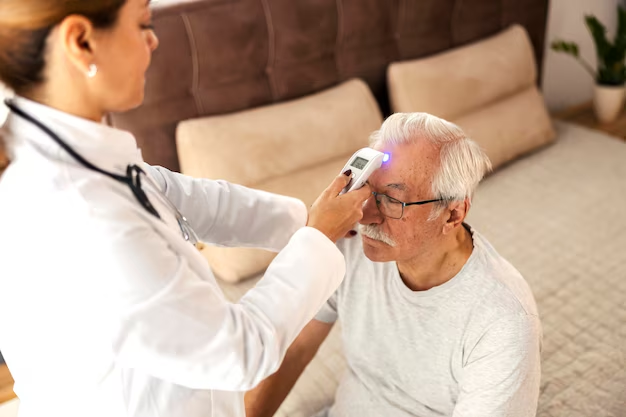Your Guide to Can Hypertension Cause Glaucoma
What You Get:
Free Guide
Free, helpful information about HyperTension FAQ and related Can Hypertension Cause Glaucoma topics.
Helpful Information
Get clear and easy-to-understand details about Can Hypertension Cause Glaucoma topics and resources.
Personalized Offers
Answer a few optional questions to receive offers or information related to HyperTension FAQ. The survey is optional and not required to access your free guide.
Can Hypertension Lead to Glaucoma? Here's What You Should Know
If you're dealing with hypertension, or high blood pressure, you might wonder about its impact on other aspects of your health, particularly your eyes. One common concern is whether this condition can lead to glaucoma, a serious eye disease that can result in vision loss. Understanding the link between hypertension and glaucoma can guide you in taking preventive measures to protect your vision.
Understanding Hypertension and Its Effects
Hypertension is often dubbed the "silent killer" due to its insidious nature. Left unmanaged, it can lead to severe health problems such as heart disease, stroke, and kidney damage. But what about its effects on the eyes?
High blood pressure can indeed affect the eyes in several ways. The increased force of the blood flow can damage the tiny blood vessels in the eyes, leading to issues like retinopathy. However, glaucoma is a different beast. While it's primarily associated with increased ocular pressure, the connection to systemic blood pressure isn't as straightforward.
The Connection Between Hypertension and Glaucoma
There's ongoing research to determine the precise relationship between hypertension and glaucoma. Some studies suggest that high blood pressure might contribute indirectly by affecting the blood flow to the optic nerve, while others indicate increased risk in individuals with circulation issues linked to hypertension.
Key points:
- Ocular perfusion pressure (the difference between blood pressure and intraocular pressure) can be affected by hypertension, playing a role in glaucoma development.
- People with poorly controlled hypertension may be at higher risk.
- Treatment of hypertension and maintaining a proper blood pressure might help reduce risks, but direct causation between high blood pressure and glaucoma hasn't been firmly established.
What You Can Do
Maintaining regular eye exams is crucial. Early detection of glaucoma can substantially reduce the risk of vision loss. If you have hypertension, keep it in check with lifestyle modifications and medications as prescribed by your doctor.
Exploring Financial and Educational Resources
Taking care of your health often requires financial resources, especially in chronic conditions like hypertension and glaucoma. Fortunately, there are several government aid programs and financial assistance options available to help with healthcare costs, making it easier to manage your condition without undue financial stress.
- Government Aid Programs: Various programs may offer assistance with medical bills, prescription drugs, and more.
- Healthcare Grants: Some non-profit organizations provide grants for individuals dealing with chronic health conditions.
- Educational Opportunities: Online resources and courses can provide strategies to manage health conditions through lifestyle changes and improve your overall well-being.
Utilizing these resources can empower you to take control of your health without the added burden of financial strain.
Quick Resource Guide 📝
- Medicare and Medicaid: Federally funded programs providing health coverage to eligible individuals.
- State Health Departments: Offer localized assistance and health programs tailored to specific needs.
- Non-profit Organizations: Often provide grants or financial support for managing chronic conditions.
- Credit Solutions: Consider options like a debt management plan to handle medical bills efficiently.
- Community Clinics: Offer services on a sliding scale based on income, making healthcare more affordable.
Managing hypertension and being vigilant about eye health is crucial. With the right knowledge and resources, you can effectively navigate these health challenges while securing the necessary support to maintain your vision and overall health.
What You Get:
Free HyperTension FAQ Guide
Free, helpful information about Can Hypertension Cause Glaucoma and related resources.

Helpful Information
Get clear, easy-to-understand details about Can Hypertension Cause Glaucoma topics.

Optional Personalized Offers
Answer a few optional questions to see offers or information related to HyperTension FAQ. Participation is not required to get your free guide.


Discover More
- a 66 Year Old Female With a History Of Hypertension
- Are Eggs Bad For Hypertension
- Are Eggs Good For Hypertension
- Are Endocrine Disorders Causing Hypertension Rare
- Can Adderall Cause Hypertension
- Can Alcohol Cause Hypertension
- Can Allergies Cause Hypertension
- Can Anemci People Get Hypertension
- Can Anemia Cause Hypertension
- Can Antibiotics Cause Hypertension
